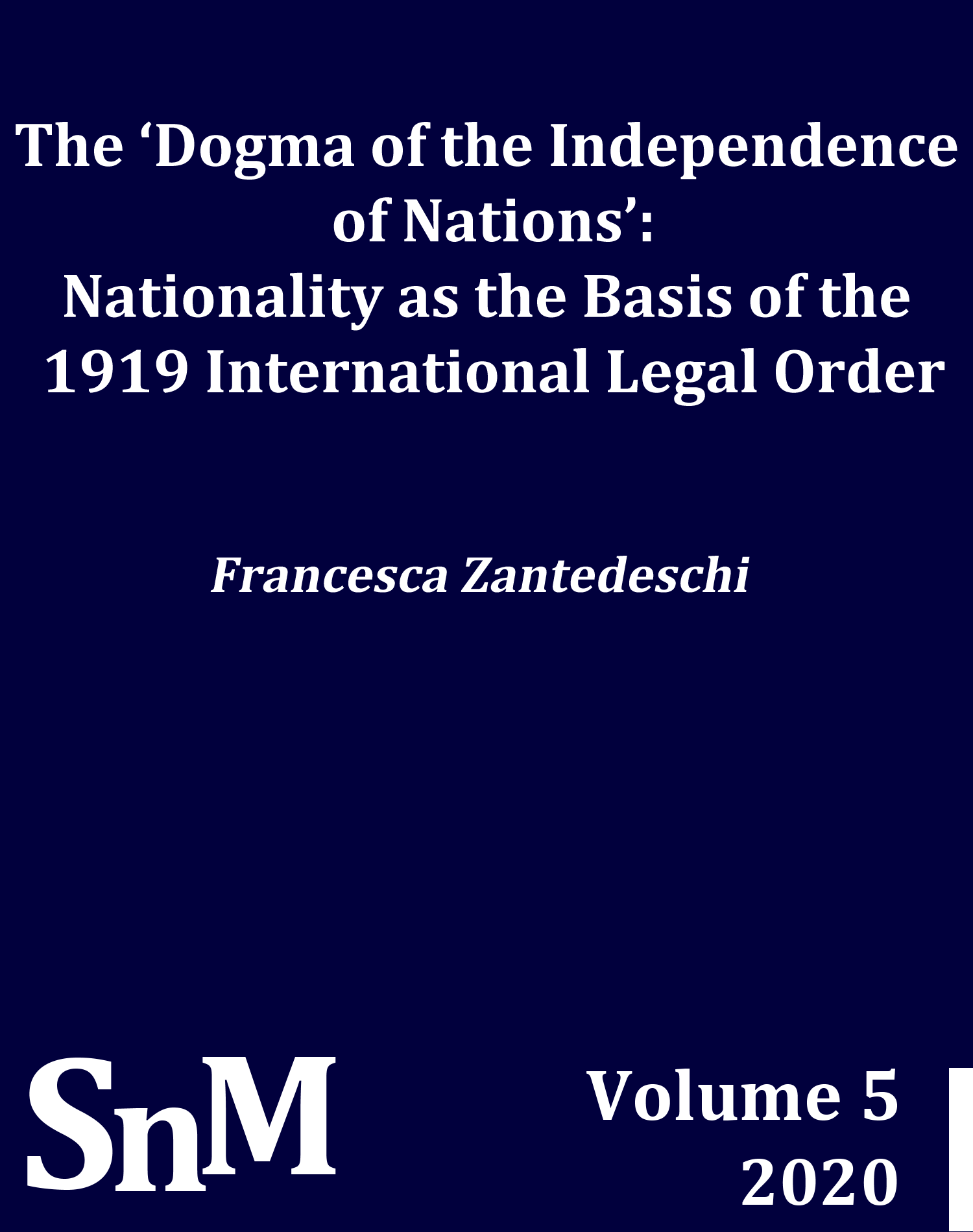The ‘Dogma of the Independence of Nations’: Nationality as the Basis of the 1919 International Legal Order
Keywords:
Nationality, Pasquale Stanislao Mancini, 1919 Peace Treaties, national self-determination, Woodrow WilsonAbstract
In 1851, in his famous lecture Della nazionalità come fondamento del diritto delle genti, the Italian jurist Pasquale Stanislao Mancini (1817-1888) formulated the so-called ‘dogma of the Independence of Nations’ – a fundamental principle of the political ideologies of the Risorgimento. In it, he defined nationality as ‘a natural society of individuals’ based on ‘unity of territory, origins, habits and language, and conformed to a commonality of life and social conscience.’ Although he is well known among scholars of international law, Mancini is far less known among historians. Yet his ‘dogma of the independence of nations’ proved to be fundamental during the 1919 Peace Treaties, when the rights of nationality became the criterion redesigning the map of Europe – nationality being officially attached to the promise of self-determination by President Woodrow Wilson.
This article intends to present the principle of nationality advocated by Mancini and how it became the basis of relations between states in international law in the second half of the nineteenth century. It also aims to analyse how the principle of nationality was transposed, formulated and interpreted in the 1919 Peace Treaties to support the rights of national minorities.

Published
How to Cite
Issue
Section
Copyright (c) 2020 Francesca Zantedeschi

This work is licensed under a Creative Commons Attribution 4.0 International License.
Authors who publish with this journal agree to the following terms:
- Authors retain copyright and grant the journal right of first publication with the work simultaneously licensed under a Creative Commons Attribution License that allows others to share the work with an acknowledgement of the work's authorship and initial publication in this journal.
- Authors are able to enter into separate, additional contractual arrangements for the non-exclusive distribution of the journal's published version of the work (e.g., post it to an institutional repository or publish it in a book), with an acknowledgement of its initial publication in this journal.
- Authors are permitted and encouraged to post their work online (e.g., in institutional repositories or on their website) prior to and during the submission process, as it can lead to productive exchanges, as well as earlier and greater citation of published work (See The Effect of Open Access).
